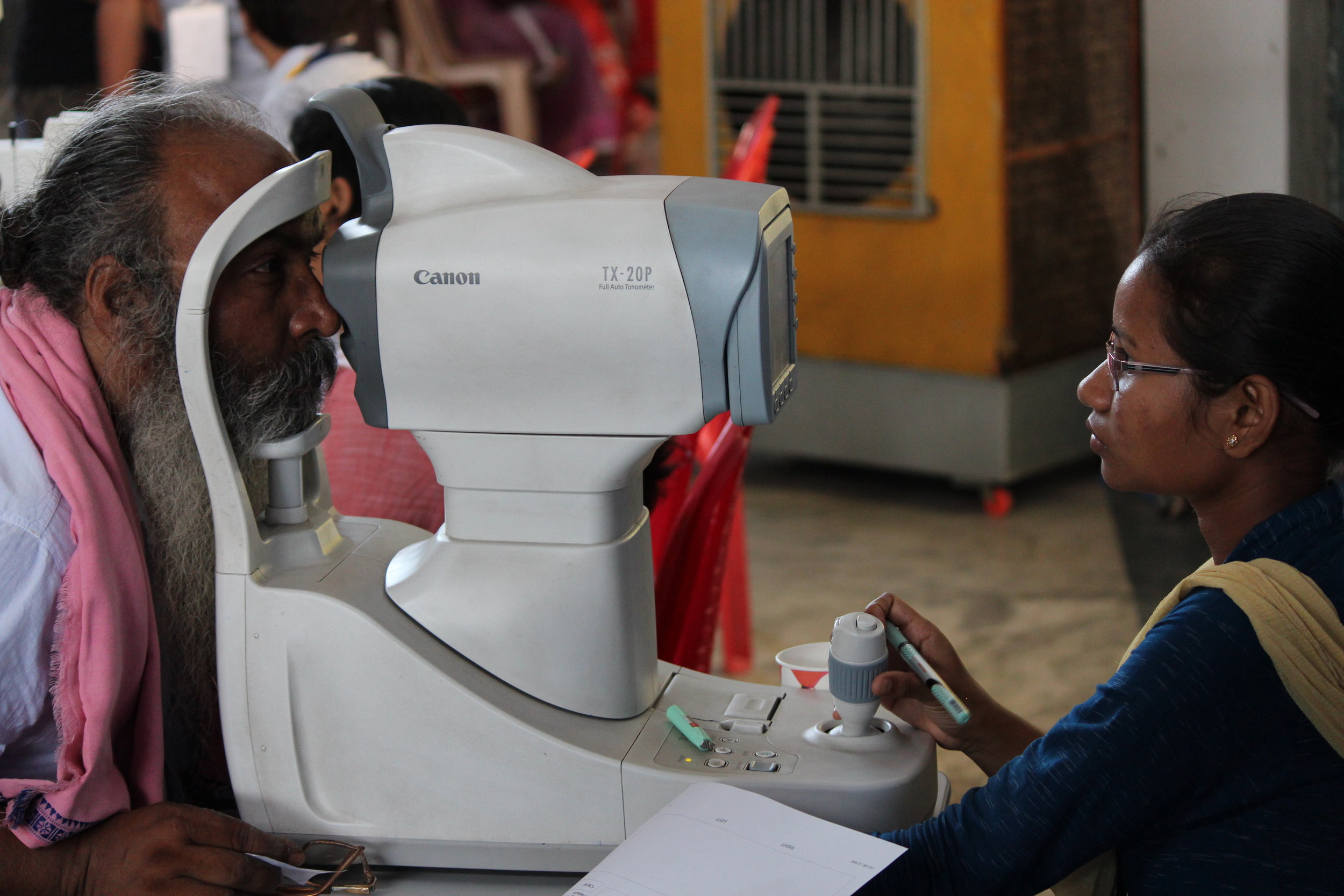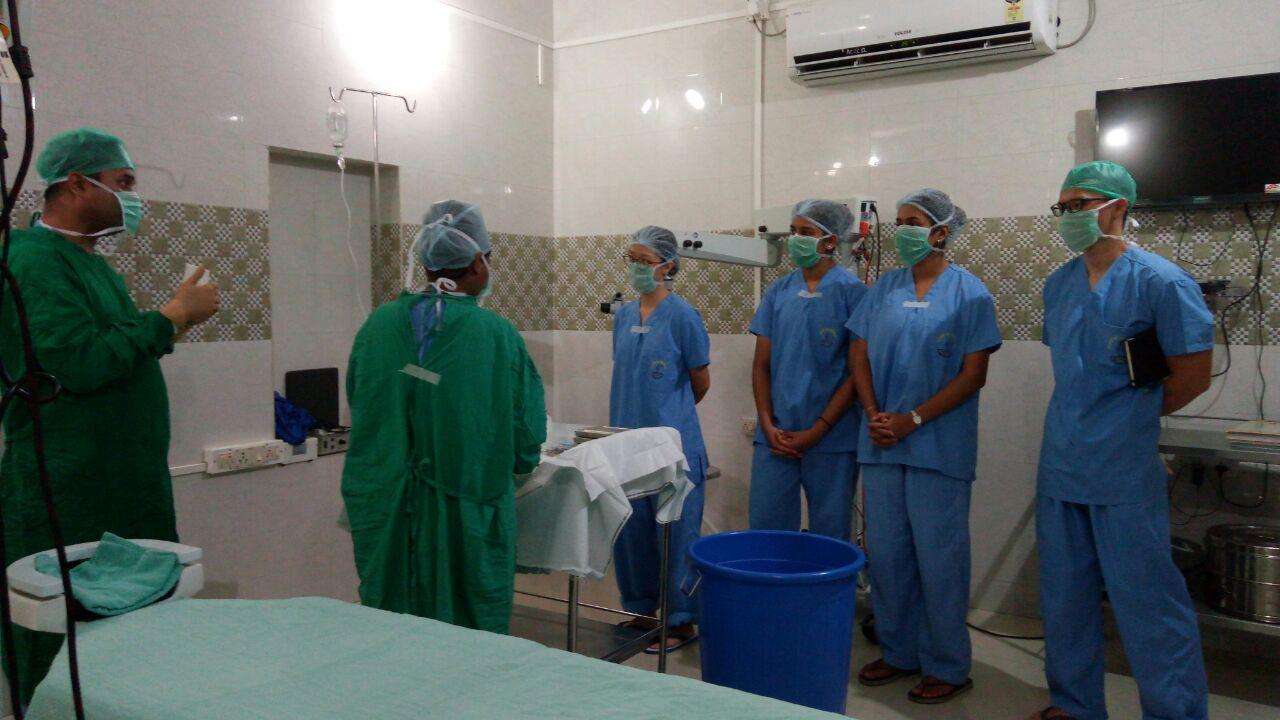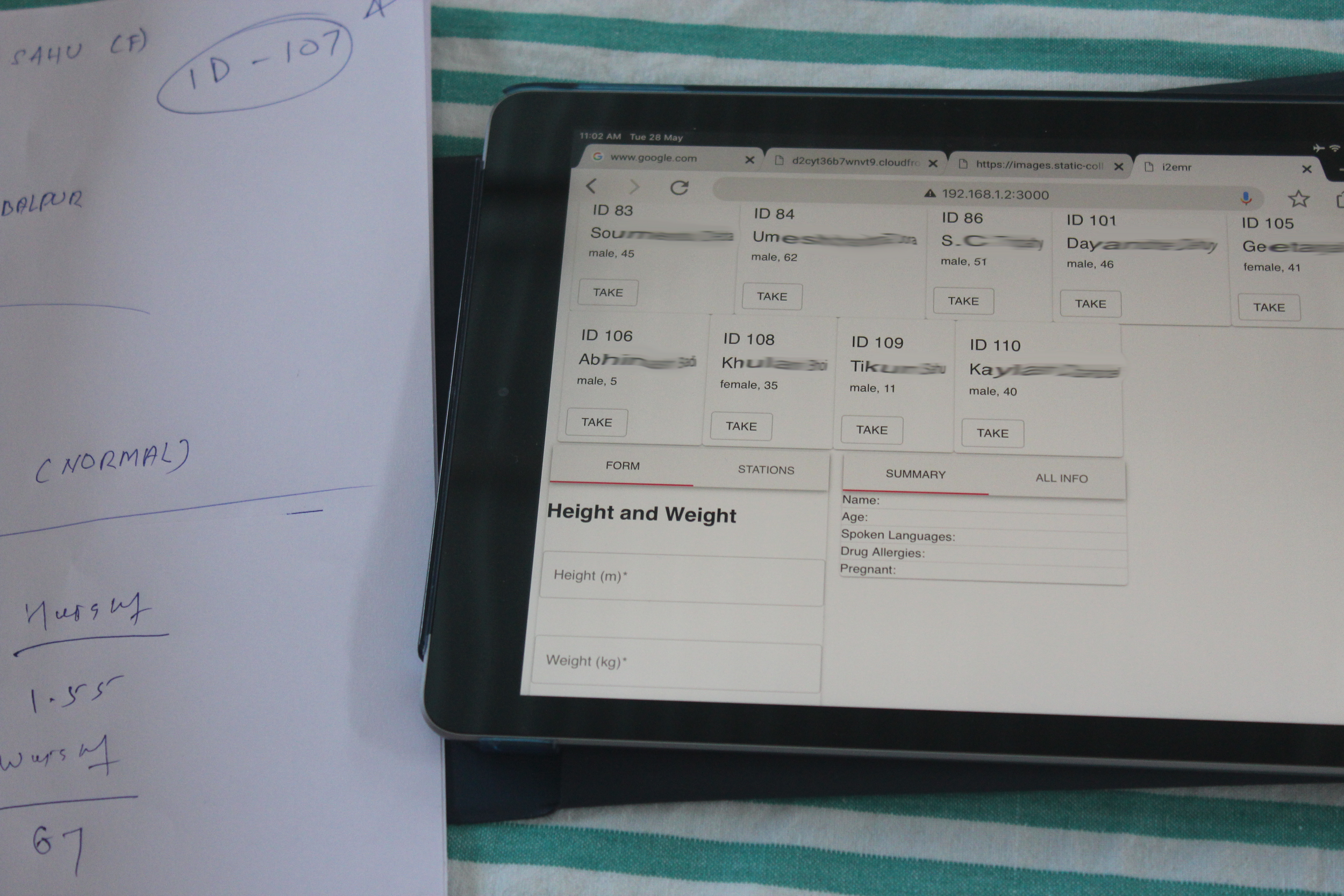
Health Screening
Every year, Project i2Eye organises free health screening events in India. Modalities offered include screening for cardiovascular diseases (diabetes mellitus, hyperlipidemia, hypertension), breast cancer, anaemia, and eye health. Courtesy of our main hospital partner Sadguru Netra Chikitsalaya (SNC), we are able to offer comprehensive eye screening and doctor’s consultations at our events.
Screening participants found to have abnormal results will be referred to the Doctor’s Consultation station for on-site triage and counselling.
In June 2019, our team ventured to Sambalpur, Odisha and screened 1000 villagers over a course of 10 days. Follow-ups were done by our then-partner, Trilochan Netyralaya (TN), reconnecting villagers back to their local healthcare providers.
In December 2019, health screenings were held in Chitrakoot, Madhya Pradesh. From the data collected, our team realised that anemia and tobacco chewing were prevalent issues worth tackling. Therefore, our current focus is developing strategies to target these in our upcoming December 2020 trip.
CARDIOVASCULAR HEALTH
Our cardiovascular health assessment comprises the following stations:
Body Mass Index (BMI)
Blood Pressure
Lipid panel (measures cholesterol levels)
Random capillary blood glucose (measures blood sugar levels to screen for possibly undiagnosed diabetes)
Waist and hip circumference (measures abdominal obesity)
Lifestyle factors (elicited during medical history taking at registration counter)
Based on the data gathered at the above stations, we calculate the Indian Diabetes Risk Score (IDRS) for our screening participants. IDRS as a tool for assessing Type 2 diabetes risk was developed by the Madras Diabetes Research Foundation, which used data derived from the Chennai Urban Rural Epidemiology Study (CURES).
BREAST CANCER
Screening participants who are keen on undergoing clinical breast examination will be examined by the on-site gynaecologist to detect for any lumps or masses in the breast that could be suggestive of breast cancer.
EYE HEALTH
Comprehensive eye screening is conducted by our main partner TN. Beyond visual acuity assessment, on-site opthalmologists are able to perform slit-lamp examination and tonometry to detect for eye conditions like cataracts, glaucoma, and macular degeneration. Screening participants who require follow-up examination/procedures for their eye conditions will be referred to TN’s hospital building in Sambalpur, Odisha.
CHILD BMI ASSESSMENT and anaemia
We use the fingerstick haemoglobin test to detect for haemoglobin (Hb) level abnormalities, which are observed in conditions such as iron-deficiency anaemia.
Children’s BMI are referenced against growth charts from the Indian Academy of Paediatrics (2015) and the World Health Organisation (2006) for assessment.
Going beyond disease screening
Increasing awareness of health conditions and motivating health-seeking behaviour
Health Education
At our screenings we have three different lesson plans for health education, depending on the needs of the screening participant:
General Health
Women’s Health
Children’s Health
SNC staff and our student volunteers assisted in translating our education materials and lesson plans to Hindi. Student volunteers are also instrumental in conducting live demonstrations for our screening participants.
General health EDUCATION objectives
Equip participants with skills and knowledge on a healthy diet, an active lifestyle, cancer risk factors, good eye care, handwashing habits as well as diabetes mellitus, so as to cultivate desirable health practices among the community
Equip participants with abnormal screening results with knowledge regarding obesity, hyperlipidemia and/or hypertension, so as to better manage their health conditions
Women’s health education objectives
Equip women with basic knowledge of menstruation and menstrual hygiene, so as to reduce misconceptions about menstruation in the community
Equip women with basic knowledge and skills on performing a breast self-examination to check for any breast changes
Taken from our Instagram story (@projecti2eye)
Children’s health education objectives
Equip young participants with skills and knowledge on good eyecare habits, a healthy diet and handwashing habits, so as to cultivate desirable health practices among the community
Health Needs Assessment
We conduct door-to-door interviews on the ground to help us have a realistic assessment of the target community, By interacting with members of the community in their home setting, we can learn more about their living conditions, their lifestyle, as well as their knowledge, attitudes, and perspectives regarding their health.
Leveraging on technology

Biometrics
The Computing students on our team continuously improve our self-developed biometrics system which can be accessed on the computer, tablet, or mobile phone. In addition to streamlining the flow of our screenings, the data captured in the application gives us insight into the disease patterns of the population. These findings help us evaluate the needs of the community and plan our interventions
Names blurred to maintain confidentiality of patient’s data











